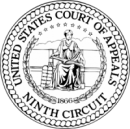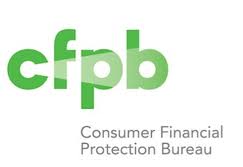The U.S. Court of Appeals for the Eighth Circuit recently affirmed the dismissal of a debtor’s federal Fair Debt Collection Practices Act (FDCPA), federal Fair Credit Reporting Act (FCRA), and state law claims where a debt collector for a major bank pulled the debtor’s credit report and served a garnishment summons after the debtor allegedly had sent a cease-and-desist letter to the debt collector. In so ruling, the Court confirmed that: (1) a debt collector may pull a debtor’s credit report for collection purposes, and that the debt collector did not need to notify the debtor before reviewing such information;…
Posts tagged as “Debt Collection”
The U.S. Court of Appeals for the Ninth Circuit recently held that a debt collector’s demand seeking 10 percent interest that was not expressly authorized by the debt agreement did not violate the federal Fair Debt Collection Practices Act or California’s equivalent Rosenthal Act, because the pre-judgment interest was permitted by state law. A copy of the opinion is available at: Link to Opinion. The plaintiff incurred a debt for dental services in 2011. The provider referred the debt to a collection agency, which sent a demand letter in May 2012 seeking the principal balance owed, plus interest at 10…
The FTC and the Office of the New York State Attorney General will host a “Debt Collection Dialogue,” aimed to be a conversation between government and business regarding consumer protection issues within the debt collection industry, in Buffalo, NY, on June 15. FTC Bureau of Consumer Protection Director Jessica Rich and New York State Attorney General Eric Schneiderman will deliver opening remarks. The afternoon program will be held at SUNY Buffalo State and will include a break and a Q&A period. Topics for discussion include recent enforcement actions, compliance issues, and consumer complaints regarding debt collection practices. The event will be the first…
The Consumer Financial Protection Bureau has issued its Consumer Response Annual Report which includes complaints related to debt collection. As it did in its Annual Report on Debt Collection issued on March 20, the CFPB again represents having received “approximately 31,100 debt collection complaints” in 2013. This number, however, is far greater than the number of debt collection complaints appearing in its public database. So where are the missing complaints? Last week Eric Rosenkoetter of the National Association of Retail Collection Attorneys provided some of his thoughts on where the missing CFPB complaints may have gone. Listen to Eric, David Reid of DBA…
A City of New York regulation that sought to regulate attorneys who practiced debt collection law, was struck down Wednesday by a Federal Court sitting in the Eastern District of New York because it violated New York’s Constitutional separation of powers. In Eric Berman, P.C. v. City of New York the court found that New York City had exceeded its authority under New York law by enacting a regulation which dictated how licensed New York attorneys may provided debt collection legal services. The regulation attempted to distinguish attorneys who regularly send debt collection letters — what it described as attorneys who “regularly…
Prelude: In 2010, the Federal Trade Commission released a study entitled “Repairing A Broken System: Protecting Consumers in Debt Collection Litigation and Arbitration.” What follows is part two of a report on their latest repair efforts. In a February blog post, I explored the Federal Trade Commission’s press release equating a potential defense (the expiration of a limitations period) with a legal right. I’m headed back to that same press release to consider another questionable call from the FTC’s efforts to “repair a broken system.” So today, here is Chapter Two: “How to Confuse People Into Believing You Are Furnishing Negative Credit Information Concerning Them.”…
When a New Jersey law firm purchased charged-off debt, then filed suit to collect it, it found itself facing a Fair Debt Collection Practices Act (“FDCPA”) putative class action. The lawsuit alleged that Hudson Law Offices, P.C. violated the New Jersey Professional Services Corporation Act (“PSCA”) by engaging in the business of purchasing defaulted credit-card debt and then suing alleged consumers to collect those debts. In denying the law firm’s motion to dismiss the Complaint, a New Jersey Federal Court Judge found that the a law firm organized under the New Jersey PSCA is prohibited from engaging in any business…







